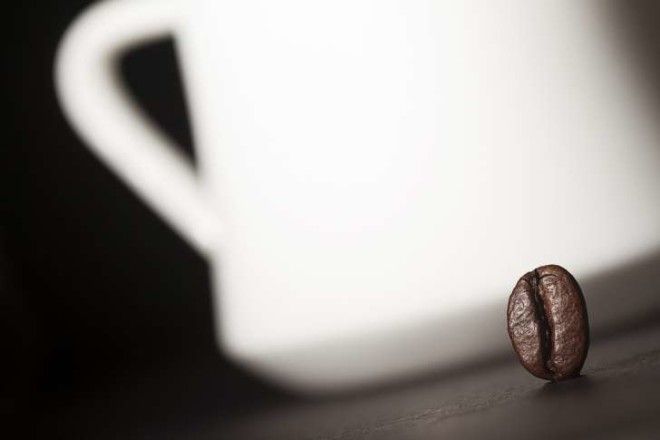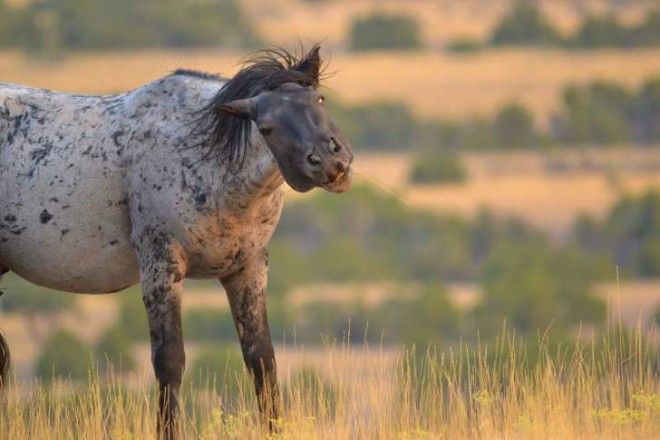There's certainly some treasure to be unearthed in one, so in honor of Thesaurus Day, here are 25 smart-sounding synonyms to reboot your vocabulary.
1. INSTEAD OF "PAUNCHY," TRY USING "ABDOMINOUS."

Derived from the same root as abdomen, if you're abdominous then you have a paunchy stomach, or a large, protruding belly.
2. INSTEAD OF "BAD LANGUAGE," TRY USING "BILLINGSGATE."

Billingsgate was a famous fish market in central London. Thanks to the foul language of the people who worked there, the name eventually became synonymous with all coarse or abusive language.
3. INSTEAD OF "BAD IDEA," TRY USING "CACOETHES."

Derived from the Greek "bad character," a cacoethes (that's "ka-ko-EE-theez”) is an insatiable desire to do something inadvisable.
4. INSTEAD OF "SKILLFUL," TRY USING "DAEDAL."

Daedalus was the architect who built the Labyrinth in the ancient myth of the Minotaur, and, derived from his name, someone who is daedal is especially skilled or artful.
5. INSTEAD OF "CONFUSE," TRY USING "EMBRANGLE."

A brangle is a squabble or a noisy argument, while to embrangle someone is to throw them into a quandary or to utterly perplex them. An embranglement, likewise, is a tricky, confusing situation.
6. INSTEAD OF "FEVERISH," TRY USING "FEBRILE."

If you've come down with the flu you might be feeling febrile, or feverish. It might only be a febricula (that's a light or passing fever), but nevertheless, you might need a febrifuge (a drug that lowers your temperature).
. INSTEAD OF "SLIPPERY," TRY USING "GLIDDERY."

If something glidders, it freezes over, which makes something gliddery very slippery, as if covered in ice.
8. INSTEAD OF "GOOSE BUMPS," TRY USING "HORRIPILATION."

That's the medical name for this curious phenomenon, which is also called gooseflesh, henflesh, or goose-pimpling.
9. INSTEAD OF "APPROPRIATE," TRY USING "IDONEOUS."

It's a little on the old-fashioned side, but idoneous, derived from the Latin word idoneus, makes a perfectly, well, appropriate replacement for words like proper, fit, and suitable.
10. INSTEAD OF "BOASTING," TRY USING "JACTANCE."

Derived from a Latin word meaning "to boast" or "speak out," jactance or jactancy is vainglorious boasting.
11. INSTEAD OF "RECOGNIZABLE," TRY USING "KENSPECKLE."

A word from Scots dialect but with its roots in Scandinavia, kenspeck or kenspeckle means "easily recognizable" or "conspicuous."
12. INSTEAD OF "INDIFFERENT," TRY USING "LAODICEAN."

Laodicea was a city in ancient Asia Minor. According to the biblical Book of Revelation, the people of Laodicea were known for their religious apathy, their fair-weather faith, and their lukewarm interest in the church—all of which prompted a pretty stern letter from St. John. As a result, a Laodicean is an apathetic, indifferent, or unconcerned person when it comes to religion.
13. INSTEAD OF "SMELLY," TRY USING "MEPHITIC."

A mephitis is a noxious, foul-smelling fume emanating from inside the earth, and anything that smells as bad as that is mephitic. Case in point, skunks were known as "mephitic weasels" is the 19th century.
14. INSTEAD OF "MISER," TRY USING "NIPCHEESE."

As well as being another name for a ship's purser (the steward in charge of the ship's accounts), a nipcheese is a mean, penny-pinching person. Feel free to also call your most miserly friend a nip-farthing, a shut-purse, a pinch-plum, or a sharp-nose.
15. INSTEAD OF "BEND," TRY USING "OBLIQUATE."

Derived from the same root as the word oblique, if something obliquates then it turns or bends to one side.
16. INSTEAD OF "CONCISE," TRY USING "PAUCILOQUENT." Advertising

Ironically, the thesaurus is full of weird and wonderful words for people who don't say very much. As well as pauciloquent, people who like to keep things brief can be laconic, synoptic, or breviloquent.
17. INSTEAD OF "QUINTESSENCE," TRY USING "QUIDDITY."

Quintessence is already a fairly smart-sounding word, but you can up the stakes with quiddity: Derived from a Latin word meaning "who," the quiddity of something is the very essence or nature of something, or a distinctive feature or characteristic.
18. INSTEAD OF "CHEERFUL," TRY USING "RIANT."

Derived via French from the Latin word for "laugh," if you're riant then you're cheerful or mirthful. A riant landscape or image, likewise, is one that makes you happy or is pleasurable to look at.
19. INSTEAD OF "TWITCHY," TRY USING "SACCADIC."

A saccade is an involuntary twitch or movement of the eye—and, figuratively, that makes someone who is saccadic characteristically fidgety, twitchy, or restless.
20. INSTEAD OF "EQUIVOCATE," TRY USING "TERGIVERSATE."

To tergiversate literally means "to turn your back on" something, but more loosely, it means to dodge a question or issue, or to avoid a straightforward explanation.
21. INSTEAD OF "HOWL," TRY USING "ULULATE."

Probably originally meant to be onomatopoeic, ululation is a howling sound like that made by wolves. More figuratively, to ululate can be used to mean "to bewail" or "lament."
22. INSTEAD OF "PREDICT," TRY USING "VATICINATE."

Derived from the Latin word for a soothsayer or seer, to vaticinate is to prophesize or predict something.
23. INSTEAD OF "UNLUCKY," TRY USING "WANCHANCY."

Wanchance is an old Scots dialect word for misfortune. Derived from that, the adjective wanchancy has fallen into more widespread use to mean "unlucky," "ill-fated," or in some contexts, "uncanny" or "eerily coincidental."
24. INSTEAD OF "LAST NIGHT," TRY USING "YESTERNIGHT."

There are more yester– words in the dictionary than just yesterday. As well as yesternight, there's yesterweek, yestereve, and yestermorn.
25. INSTEAD OF "CRITICISM," TRY USING "ZOILISM."

Zoilus was one of the harshest critics of the ancient Greek writer Homer, and he was known for his scathing, nit-picking attacks on Homer's Iliadand Odyssey. Derived from him, a zoilist is an overbearingly harsh critic, while unduly harsh criticism is zoilism.

